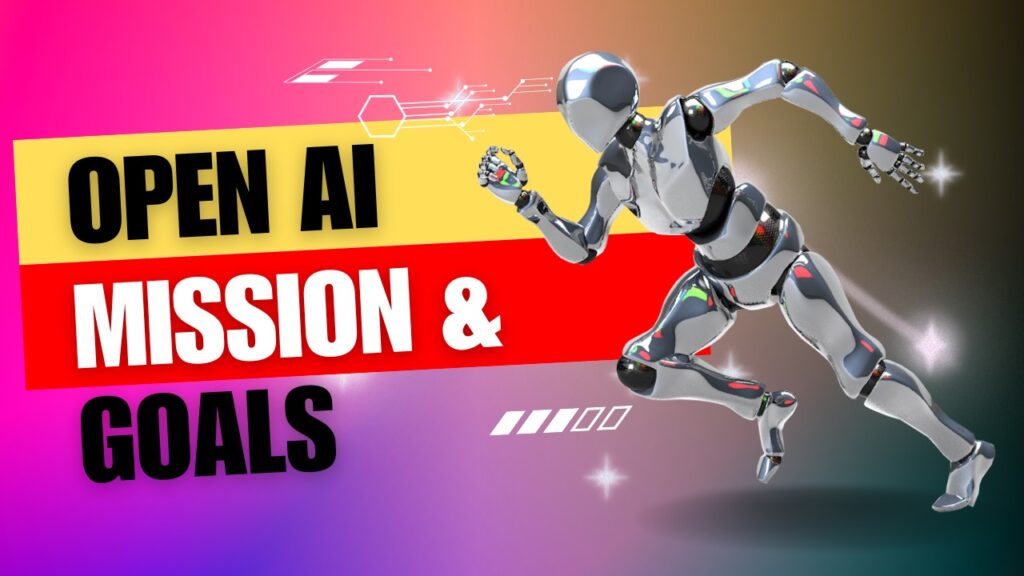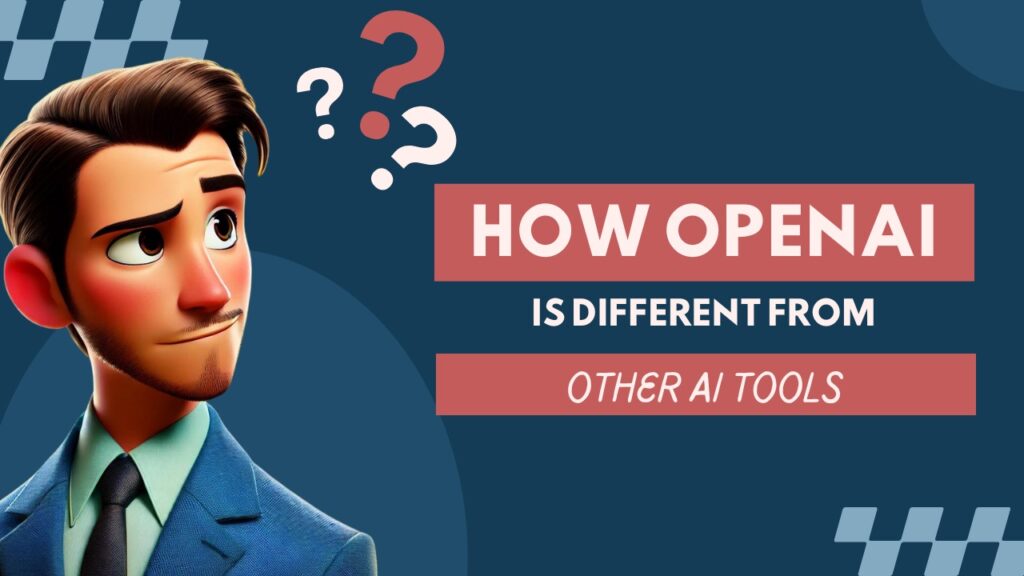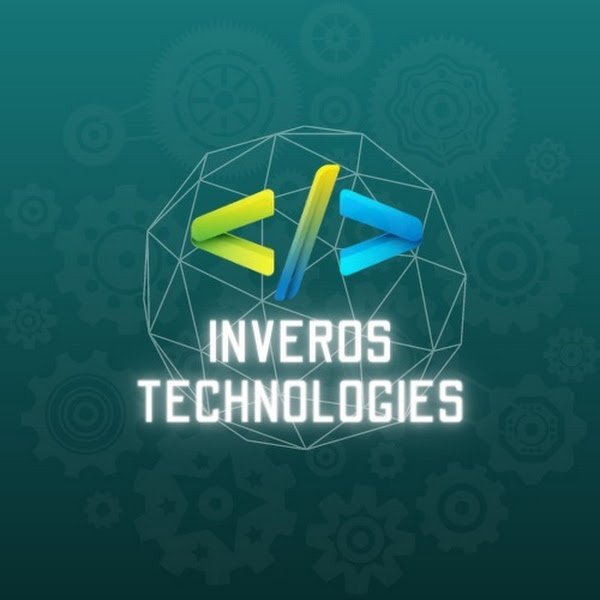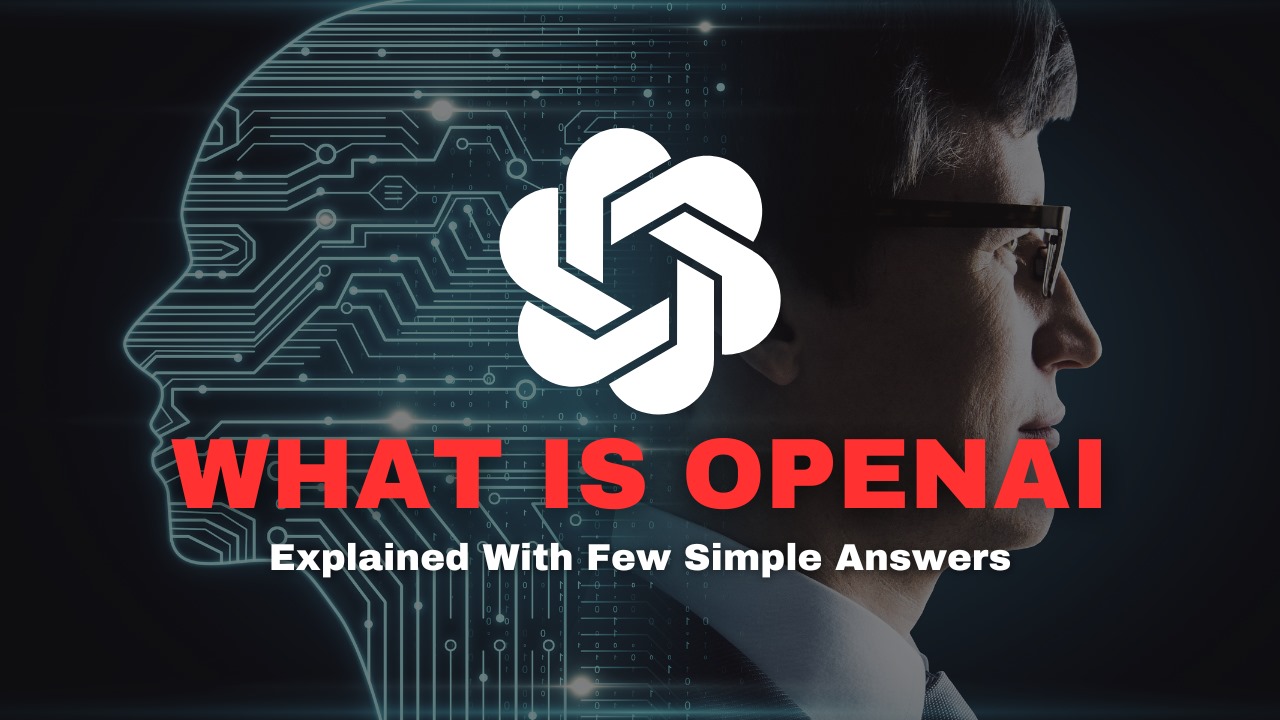Here we are answering OpenAI FAQs to enhance your vision and clear the misunderstandings.
What is an Open AI? OpenAI is a groundbreaking artificial intelligence research and deployment company with a mission to ensure that artificial general intelligence (AGI) benefits all of humanity. Founded in 2015, it has rapidly become a leading force in the AI world.
An OpenAI’s Mission and Goals

Open AI’s primary objective is to develop safe and beneficial artificial general intelligence (AGI), ensuring that its advancements are accessible to the public and contribute positively to society.
Organizational Structure
OpenAI operates under a unique non-profit cap-profit model. This structure balances the pursuit of scientific advancement with the need for sustainable funding.
How An Open AI Works?
OpenAI employs a multidisciplinary team of world-class researchers, engineers, and scientists to drive AI innovation.
Research Focus
OpenAI’s research encompasses a wide range of areas, including:
Machine Learning: Developing algorithms that enable computers to learn from data without explicit programming.
Deep Learning: Creating artificial neural networks inspired by the human brain.
Reinforcement Learning: Training AI agents to make decisions through trial and error and rewards.
Natural Language Processing (NLP): Enabling computers to understand and generate human language.
Computer Vision: Developing systems that can interpret and understand visual information.
Notable Achievements
OpenAI has produced several groundbreaking AI models, such as GPT-3, DALL-E, GPT- 4o and Codex, demonstrating remarkable capabilities in text generation, image creation, and code generation.
Open AI’s Impact
OpenAI’s work has far-reaching implications for various industries and aspects of human life.
Healthcare: AI-powered diagnostics, drug discovery, and personalized medicine.
Climate Change: Developing AI solutions for climate modeling, renewable energy, and disaster response.
Education: Personalized learning, intelligent tutoring systems, and accessible education.
Business: Optimizing operations, enhancing customer experiences, and driving innovation.
As Open AI continues to push the boundaries of AI research, its impact on society is expected to grow exponentially.
How is Open AI Different from Regular AI?

Traditional AI often relies on a set of predefined rules. These systems are excellent at tasks that can be broken down into clear steps, like playing chess or solving mathematical equations. However, they struggle with ambiguity and real-world complexities.
OpenAI, on the other hand, is built on machine learning, which allows it to learn from data and improve its performance over time. This makes it far more adaptable to new situations and challenges.
Understanding vs. Processing
Another key difference lies in the ability to understand. While traditional AI can process information at incredible speeds, it often lacks the capacity to comprehend the meaning behind the data. OpenAI, with its advancements in natural language processing, can understand and interpret information in a way that’s closer to human cognition.
What Can Open AI Do?
OpenAI’s language models are revolutionizing how we interact with computers. These models can:
Generate text: From writing emails to creating poems, language models can produce human-quality text.
Translate languages: Break down language barriers with accurate and fluent translations.
Summarize text: Quickly extract key information from long documents.
Answer questions: Provide informative and comprehensive answers to a wide range of queries.
Image Generation
OpenAI is pushing the boundaries of creativity with its image generation capabilities.
Text-to-image: Describe an image in words, and OpenAI can create it.
Image editing: Modify existing images based on text prompts.
Style transfer: Apply the style of one image to another.
Problem Solving
OpenAI is not just about creativity; it’s also a powerful problem-solving tool.
Data analysis: Uncover hidden patterns and insights from large datasets.
Predictive modeling: Forecast future trends and outcomes.
Optimization: Find the best solutions to complex problems.
Virtual Assistants: Intelligent Companions
OpenAI is at the heart of many virtual assistants, enabling them to:
Understand natural language: Process and respond to human language in a conversational way.
Complete tasks: Perform actions based on user requests.
Learn and adapt: Improve over time based on user interactions.
For instance Gpt-4o, Gpt-3 are serving as virtual assistants for writers and Dall-E 2 is serving for designers.
Code Generation: The Future of Programming
OpenAI is changing the way we write code.
Code completion: Suggest code snippets to accelerate development.
Generation: Create entire code functions based on descriptions.
Code debugging: Identify and fix errors in code.
These are just a few examples of OpenAI’s capabilities. As research continues, we can expect even more groundbreaking applications to emerge.
OpenAI Is A Driving Force for Innovation
OpenAI is more than just a tech company; it’s a catalyst for positive change across various sectors. Let’s explore how:
Democratizing AI
Open-Source Initiatives: OpenAI has made significant contributions to the open-source community, making AI accessible to a wider audience.
Educational Resources: By providing tutorials, workshops, and online courses, OpenAI is fostering AI education and skill development.
Safe and Beneficial AI
Ethical Guidelines: OpenAI is at the forefront of developing ethical guidelines for AI development and deployment.
Risk Mitigation: The company is actively researching and addressing potential risks associated with AI, such as bias and job displacement.
Transforming Industries
Healthcare Revolution
Drug Discovery: Accelerating the development of new drugs through AI-powered simulations and data analysis.
Disease Diagnosis: Improving accuracy and speed of disease diagnosis using AI-driven image analysis.
Personalized Medicine: Tailoring treatment plans based on individual patient data.
Climate Change Solutions
Sustainable Energy: Optimizing energy production and distribution through AI-powered systems.
Climate Modeling: Improving climate prediction and understanding through advanced AI techniques.
Environmental Conservation: Protecting ecosystems and biodiversity using AI-driven monitoring and analysis.
Economic Growth and Job Creation
Automation and Efficiency: Automating repetitive tasks to increase productivity and create new job opportunities.
Innovation and Entrepreneurship: Fostering a thriving AI startup ecosystem.
Economic Modeling: Using AI to predict economic trends and inform policy decisions.
Education and Research
Personalized Learning: Tailoring education to individual student needs and learning styles.
Scientific Discovery: Accelerating research in various fields through AI-powered data analysis.
Accessibility: Making education and research more accessible to people with disabilities.
OpenAI’s commitment to research, development, and collaboration is shaping the future of technology and society. As AI continues to evolve, OpenAI is poised to play a pivotal role in harnessing its potential for the benefit of humanity.
Getting Started with OpenAI
OpenAI offers a range of tools and APIs to help you harness the power of AI. Whether you’re a developer, researcher, or simply curious about AI, there’s an entry point for everyone.
Creating an OpenAI Account
The first step is to create an OpenAI account. This will provide you with access to the platform and its resources.
Sign up: Visit the OpenAI website and create a new account.
API Keys: Once you have an account, generate an API key. This key is essential for interacting with the OpenAI API.
Exploring OpenAI’s Offerings
OpenAI provides several tools and services to cater to different needs:
API: The OpenAI API offers a wide range of models for tasks like text generation, image creation, and code completion.
GPT-3: One of the most famous models, GPT-3, is capable of generating human-quality text, translating languages, writing different kinds of creative content, and answering your questions in an informative way.
DALL-E: This model specializes in generating images from text descriptions.
Codex: Designed to understand and generate code, Codex can assist developers in writing code, debugging, and explaining code.
Building Your First Project
Start small and experiment with different models. Here are some ideas:
Text Generation: Create a simple chatbot or story generator.
Image Creation: Experiment with different prompts to generate unique images.
Code Assistance: Use Codex to help you write or improve code snippets.
Tips for Success
Start with clear prompts: The quality of your output depends largely on the clarity and specificity of your prompts.
Experiment and iterate: Don’t be afraid to try different approaches and refine your prompts.
Leverage community resources: Join online forums and communities to learn from others and share your experiences.
Ethical considerations: Be mindful of the ethical implications of AI and use it responsibly.
Remember, the best way to learn is by doing. Start exploring OpenAI’s tools and discover the endless possibilities.
The Future of OpenAI
Let’s have a look at Open AI dominated future.
The Impact of AI on Society
The rise of AI, particularly as embodied by OpenAI’s advancements, is poised to reshape society in profound ways. While the potential benefits are immense, it’s essential to consider the potential challenges and work towards mitigating them.
Economic Implications
Job displacement: Automation driven by AI could lead to job losses in certain sectors. However, it’s also expected to create new job opportunities in AI development, maintenance, and related fields.
Economic growth: AI has the potential to boost economic growth by increasing efficiency, productivity, and innovation.
Social Impact
Digital divide: Unequal access to AI technology could exacerbate existing social inequalities.
Privacy concerns: The collection and use of vast amounts of data for AI training raise privacy concerns.
Ethical considerations: AI systems must be developed and deployed ethically to avoid bias and discrimination.
The Challenges of AI Development
Developing safe and beneficial AI is a complex challenge with multiple facets.
Safety
Unintended consequences: AI systems can exhibit unexpected behaviors, leading to harmful outcomes.
Control problem: Ensuring that AI systems remain under human control is a critical challenge.
Existential risk: Some experts warn of the potential for AI to pose an existential threat to humanity.
Alignment
Value alignment: Aligning AI systems with human values is essential to prevent harmful behavior.
Interpretability: Understanding how AI systems reach their decisions is crucial for ensuring safety and accountability.
Bias
Data bias: AI systems can inherit biases present in the data they are trained on.
Algorithmic bias: Bias can also be introduced through the algorithms themselves.
Mitigating bias: Developing techniques to identify and reduce bias in AI systems is essential.
Addressing these challenges requires a multidisciplinary approach involving researchers, policymakers, and industry leaders.
AI in Education
The intersection of AI and education holds immense potential to revolutionize the way we learn and teach. By leveraging AI, we can create more personalized, engaging, and effective learning experiences.
Personalized Learning
Adaptive Learning Platforms: AI-powered platforms can analyze student data to tailor learning paths, pacing, and content to individual needs and learning styles.
Intelligent Tutoring Systems: AI-driven tutors can provide personalized guidance and support, addressing students’ specific questions and challenges.
Enhanced Teacher Effectiveness
Automated Tasks: AI can automate administrative tasks, allowing teachers to focus more on student interaction and instruction.
Data-Driven Insights: AI can provide teachers with valuable insights into student performance, helping them identify areas where students might need additional support.
Accessibility and Inclusion
Assistive Technologies: AI can power assistive technologies that help students with disabilities access education.
Language Translation: AI-driven translation tools can break down language barriers and create more inclusive classrooms.
Challenges and Considerations
While the potential benefits of AI in education are significant, it’s important to address potential challenges:
Digital Divide: Ensuring equitable access to AI-powered education is crucial to prevent widening educational disparities.
Data Privacy: Protecting student data is paramount to building trust in AI-driven educational systems.
Teacher Training: Educators need to be equipped with the skills to effectively integrate AI into their classrooms.
To fully realize the potential of AI in education, a collaborative effort involving educators, policymakers, technologists, and students is essential. By working together, we can create a future where AI empowers learners and teachers to achieve their full potential.
Related article for you..
AI in Business
AI is rapidly transforming the business landscape, offering unprecedented opportunities for growth and efficiency. Let’s explore how businesses are leveraging AI to gain a competitive edge.
Enhancing Customer Experience
Personalized Marketing: AI-powered analytics can analyze customer data to deliver highly targeted marketing campaigns.
Chatbots and Virtual Assistants: Improving customer service through 24/7 support and instant responses.
Recommendation Systems: Offering personalized product recommendations based on customer behavior.
Optimizing Operations
Supply Chain Management: Predicting demand, optimizing inventory levels, and improving logistics.
Predictive Maintenance: Identifying potential equipment failures before they occur, reducing downtime.
Fraud Detection: Protecting businesses from financial losses through real-time fraud detection.
Driving Innovation
Product Development: Generating new product ideas, optimizing product design, and accelerating time-to-market.
Data Analysis: Uncovering valuable insights from vast amounts of data to inform business decisions.
Risk Management: Assessing and mitigating risks through advanced data analysis and modeling.
Challenges and Considerations
While AI offers immense potential, businesses must navigate several challenges:
Data Quality: Ensuring data accuracy and completeness is crucial for AI models to deliver reliable results.
Talent Acquisition: Finding skilled AI professionals can be competitive.
Ethical Considerations: Implementing AI in an ethical and responsible manner is essential to maintain trust.
For further information, you can visit the official website.
Conclusion
Artificial Intelligence, spearheaded by advancements from OpenAI and other pioneers, is undeniably reshaping the world around us. From revolutionizing industries to enhancing our daily lives, AI’s impact is profound and far-reaching.
The Promise of AI
Economic Growth: AI has the potential to boost economic growth by increasing efficiency, productivity, and innovation.
Solving Global Challenges: AI can contribute to addressing pressing global issues such as climate change, healthcare, and poverty.
Human Augmentation: AI can enhance human capabilities, allowing us to achieve new heights in various fields.
The Challenges Ahead
Ethical Considerations: Ensuring AI is developed and used ethically is paramount to avoid negative consequences.
Job Displacement: The rise of AI raises concerns about job losses and economic inequality.
Safety: Safeguarding against unintended consequences and malicious use of AI is crucial.
A Collaborative Future
To fully realize the benefits of AI while mitigating its risks, a collaborative approach is essential. Governments, businesses, academia, and civil society must work together to develop and implement AI responsibly.
OpenAI’s commitment to research, development, and open collaboration is a significant step in the right direction. As AI continues to evolve, it is imperative to foster a future where technology serves humanity and enhances the well-being of all.




You have remarked very interesting points!
Hey people!!!!!
Good mood and good luck to everyone!!!!!